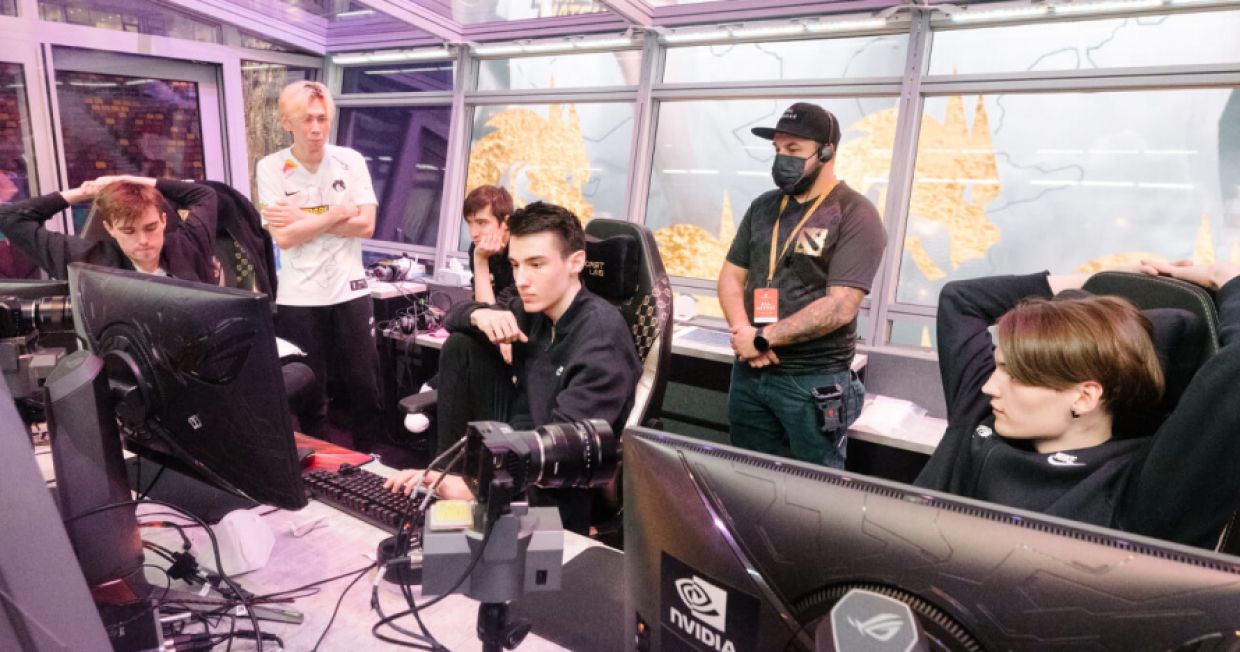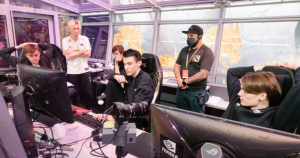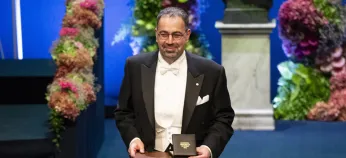
Russia esports triumph hailed by Putin, media

An unexpected success came last week when Russia’s Team Spirit won the Dota 2 event at The International (TI10), the world’s leading esports tournament. The champions were congratulated by President Vladimir Putin, their victory was reported on national TV, and on social media the win inspired a surge of national pride. However, as The Bell discovered, everything may not be as straightforward as it seems: a vast gaming empire stands behind the team, providing a potential source of scandal and legal wrangling.
- In Sunday’s TI10 final in Bucharest, Team Spirit overcame China’s renowned PSG.LGD, which has been backed by Paris St. Germain football club since 2018. The $40 million prize fund, partly raised through crowdfunding, was a record for an esports event. Team Spirit scooped $18.2 million for their victory. The team features Russians Yaroslav Naidenov (Miposhka), Magomed Khalilov (Collapse), Alexander Khertek (Torontotokyo), and two Ukrainians, Miroslav Kolpakov (Mira) and Ilya Mulyarchuk (Yatoro).
- Congratulating the champions, Putin praised their “leadership qualities and solidarity,” calling the decisive game “a real test of skill and character.” Deputy Prime Minister Dmitry Chernyshenko said that Team Spirit’s victory “focuses the attention of our society on something that combines the two most important components of our modern life: sport and digital technology.” Former boxer and current State Duma deputy Nikolai Valuev, who promoted the inclusion of cybersports into Russia’s official register of sports, was concerned about the future of the team: “The most important thing is that these big-headed kids don’t run away to serve the interests of Western corporations,” he said.
- Team Spirit’s success was not only a first for Russia. Since the inaugural edition of The International in 2011, won by Ukrainian team NaVi, nobody from the former USSR has finished on the podium.
- Nobody expected Team Spirit to enjoy such dizzying success — the TI10 winners came together less than a year ago and began the tournament with defeats against two outsiders. There were few willing to back the Russian team. Bookmaker Parimatch rated a whitewash victory for their Chinese opponents as the most probable outcome in the final. The long odds helped Anton Cherepennikov, former owner of Russia’s oldest cyber team, Virtus.pro, scoop a record win. At the start of the tournament he staked 1.53 million rubles ($21,700) on Team Spirit at odds of 28/1, making his 44.4 million ($631,000) payout the biggest return from a bet on cybersports ever in Russia. Cherepennikov had also staked 3.53 million rubles ($50,100) on Virtus.pro, but they finished in joint 5th/6th.
- The organization that put together Team Spirit also has a tale to tell. It was formed in 2015 but players in the esports arena felt that it achieved little success during its early years. Previously, its willingness to gamble on rookies and new talents bore little fruit. But victory at TI should more than compensate for those unsuccessful attempts, The Bell’s source in the esports market said.
- The people behind Team Spirit are not known. The team’s CEO, Nikita Chukalin, a former Dota2 player himself, refuses to talk about them. But, as The Bell discovered, there could be a vast gaming empire behind the team, funded by selling skins for use in the most popular games. For example, in Counter-Strike a skin is not an actual weapon, it gives no gaming advantage, but it allows players to customize the appearance of their arsenal. A whole market has grown up around these products, including an exchange where players can buy and sell skins and where the most valuable items can cost tens of thousands of dollars. In some countries, selling these apparently worthless skins is regarded as a form of gambling which is dangerously accessible to minors. In the USA, for example, one large developer was sued over their role in the industry.
- One of the biggest sites for the sale of skins, market.csgo.com, belongs to Team Spirit’s backers, according to two players on the esports market who spoke with The Bell. The domain for Team Spirit’s site also belongs to a company connected to Estonia’s Crystal Future, another exchange for skins and a wide range of similar projects. The business of the entire group is capable of raising $30-40 million a year.
Why the world should care: Team Spirit’s success could trigger a push to establish a new cyber-sports dynasty in Russia and should, at the very least, lead to broader coverage. However, there is a danger that, like almost all other areas of Russia’s internet and gambling markets, it could fall under strict regulation.





